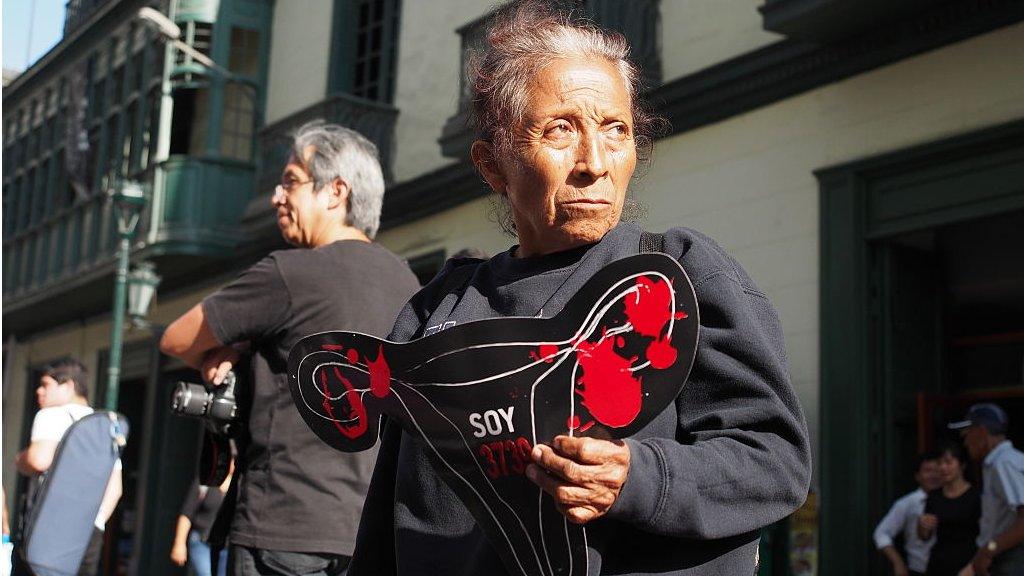Peru election: Fujimori cries foul as she falls behind in count
- Published
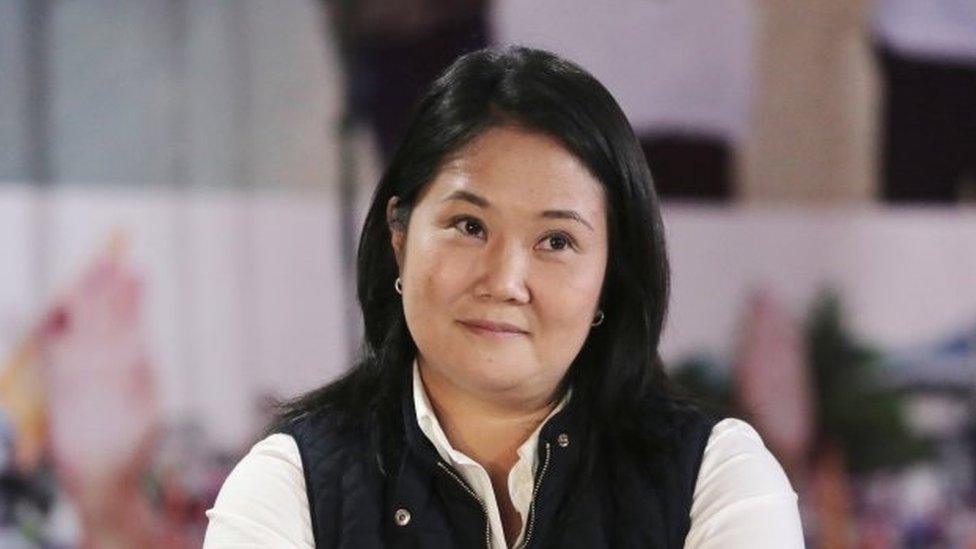
Keiko Fujimori is running for president for the third time
The right-wing candidate in Peru's presidential election, Keiko Fujimori, alleges there have been "signs of fraud" in Sunday's run-off election.
"There is a clear intention to boycott the popular will," she said without offering detailed evidence.
She made the allegation after her left-wing rival, Pedro Castillo, pulled past her in the vote count.
With 97.3% of the votes counted, Mr Castillo had a razor-thin lead of less than 0.5 percentage points.
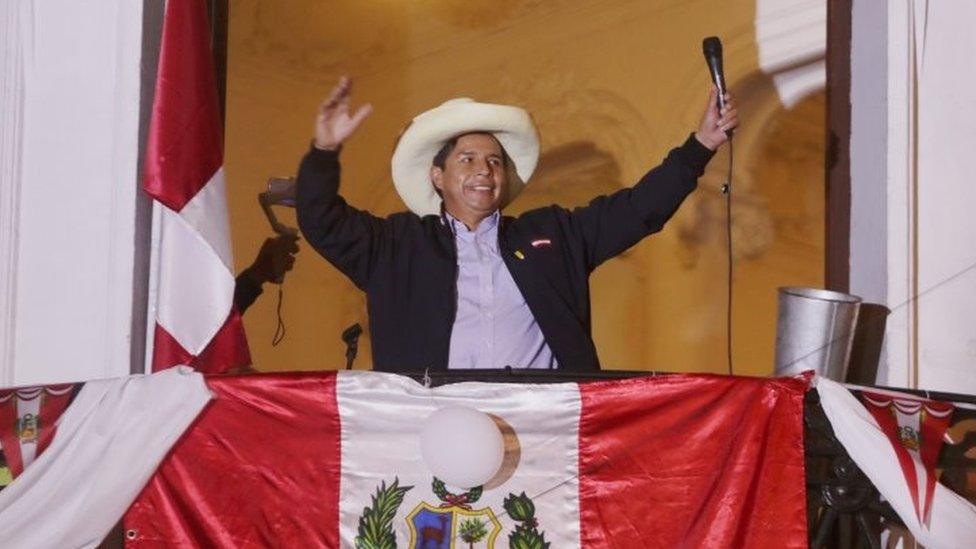
Pedro Castillo has pulled ahead in the vote count but the result is not clear yet
In a news conference, Ms Fujimori alleged that there had been a "strategy by Peru Libre [Free Peru, the party of Mr Castillo] to distort and delay the results which reflect the popular will".
Peru Libre rejected the accusation, tweeting that it had "never resorted to electoral fraud, to the contrary, we've always been victims of it".
Unpredictable finish
After accusing her rival's party of fraud, Ms Fujimori struck a more optimistic note, saying that the tables could still turn once the votes from Peruvians abroad were counted.
The votes that are still to be counted come mainly from remote rural areas in Peru and from Peruvians who cast their ballots in consulates across the world.
Mr Castillo has strong support in rural areas but Ms Fujimori has done well with Peruvians living outside their homeland, making the final result extremely hard to predict.
Whoever wins will have a tough task ahead bringing together a polarised nation which has seen its economy crumble as it was hit hard by the coronavirus pandemic.
After changing the methodology of how it registers Covid deaths, Peru became the country with the highest per capita death rate from coronavirus in the world.
In an attempt to woo those hit by the pandemic, Ms Fujimori said that if elected, her government would give 10,000 soles ($2,600; $1,830) to families who had lost a relative to Covid-19.
But many Peruvians fear that if she wins, the country's "old guard" could return to power. Ms Fujimori is the daughter of former President Alberto Fujimori, who is in jail serving a 25-year-sentence for crimes including corruption and human rights abuses.
She has said that if she is elected she will pardon her father, who remains a deeply divisive figure - praised by some for his fight against Shining Path guerrillas and denounced by others for abuses carried out during his time in power, including forced sterilisations of indigenous women.
Meanwhile, there are also those who fear that Pedro Castillo, a primary teacher who was little known before winning the first round of the election, could destabilise the country's economy.
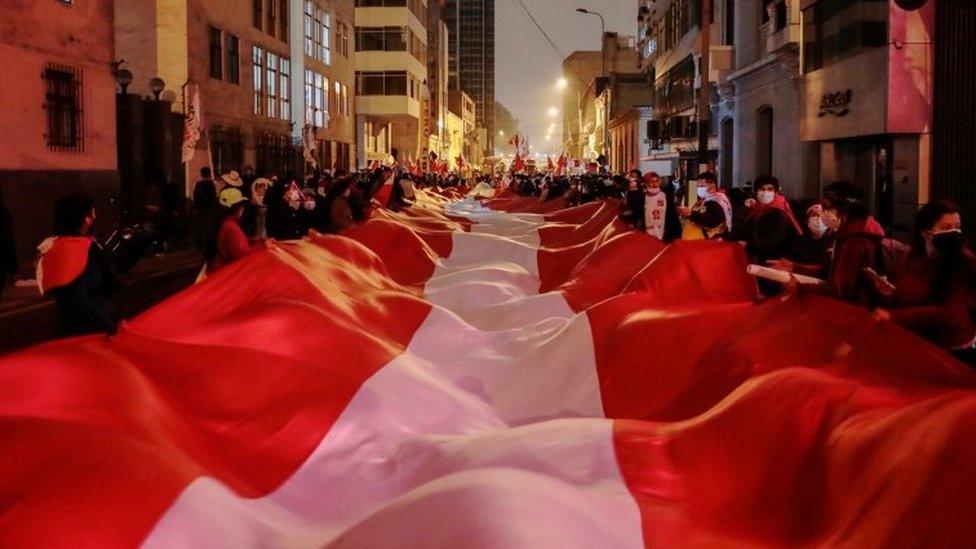
Supporters of Mr Castillo gathered in Lima to express their backing for the primary teacher
The left-wing trade unionist campaigned on a promise to help the poor by introducing higher taxes on powerful mining firms in this copper-producing nation.
On Monday, the Peruvian currency fell to an all-time low as Mr Castillo overtook Ms Fujimori in the vote count.
He has also said that he wants to rewrite the constitution "to end all inequalities" and promised to make human rights a priority.
Whoever becomes president will also have to contend with a Congress in which 10 parties squabble for control and which in the past has toppled presidents.
Over the past four years, Peru has had four leaders: one resigned over a vote-buying scandal, another was impeached, a third stepped down after less than a week in the post, and the fourth is the current interim president.
Related topics
- Published8 June 2021
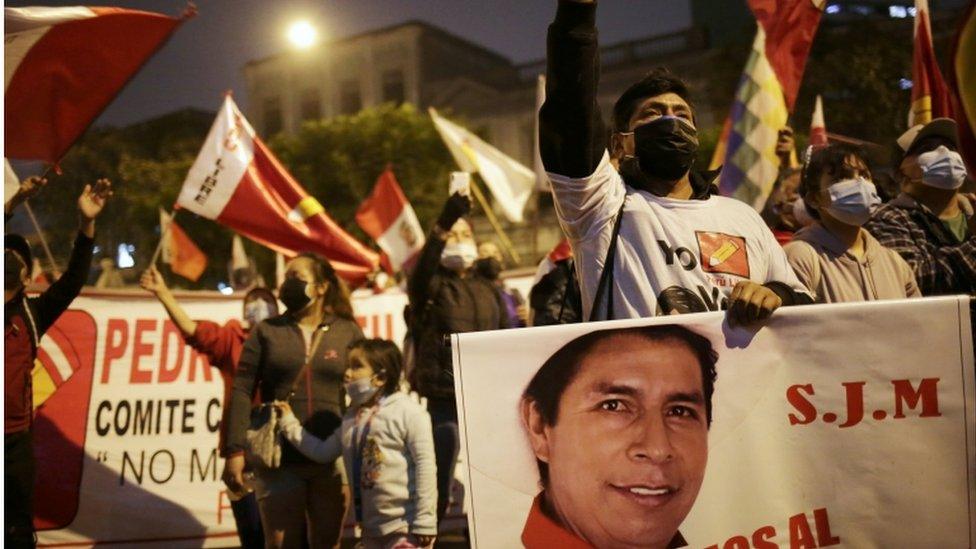
- Published25 May 2021
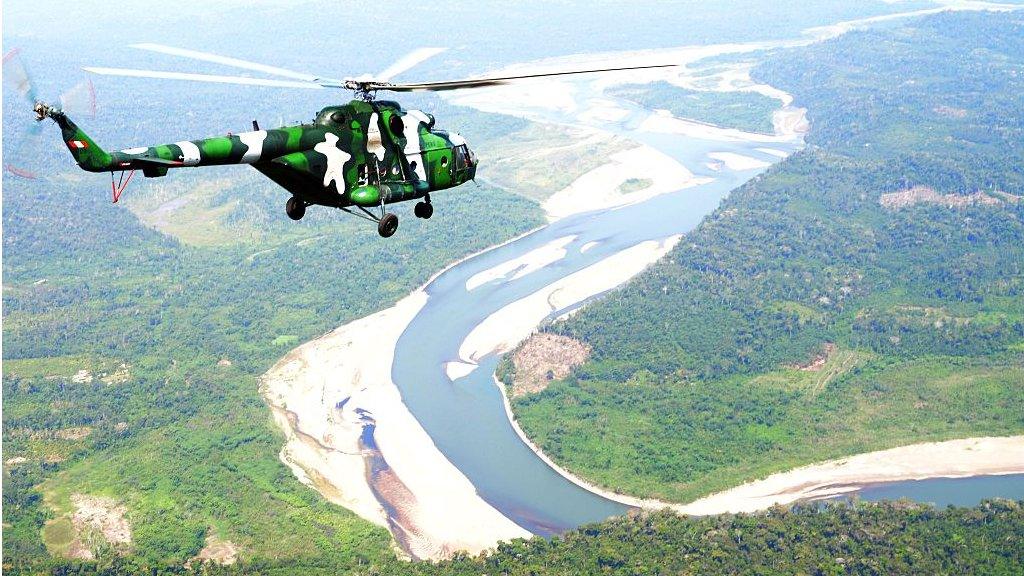
- Published26 April 2021
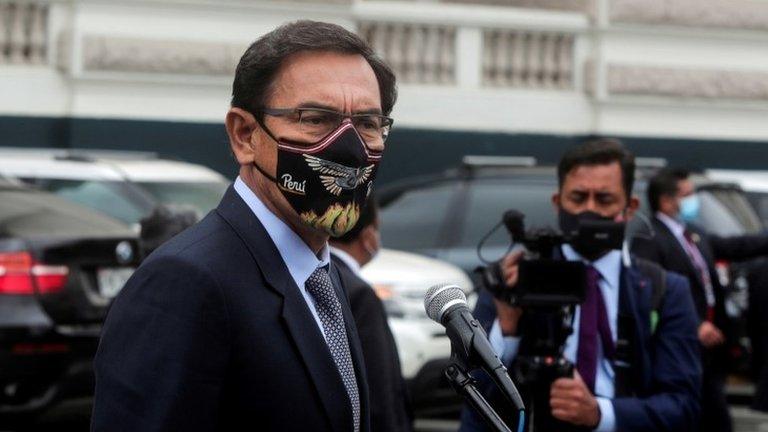
- Published13 April 2021
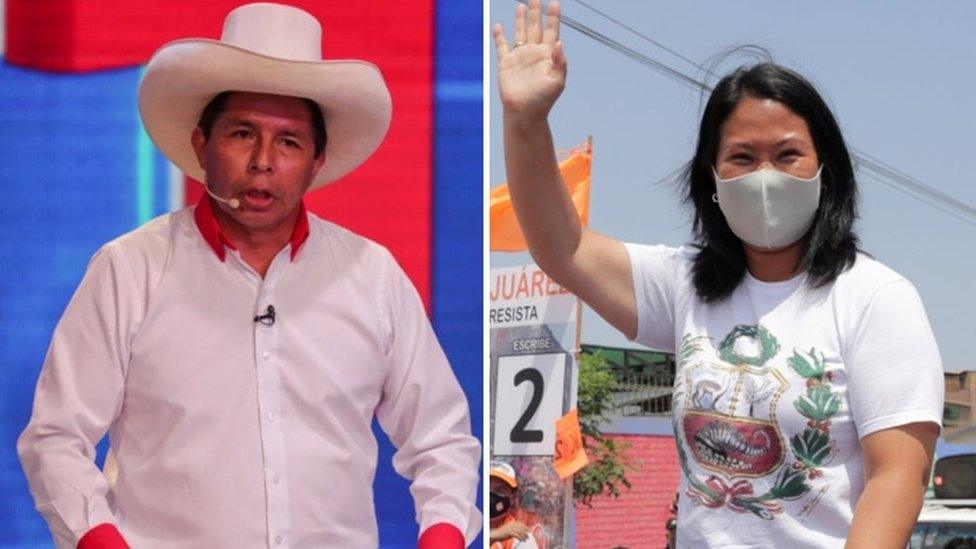
- Published1 March 2021
